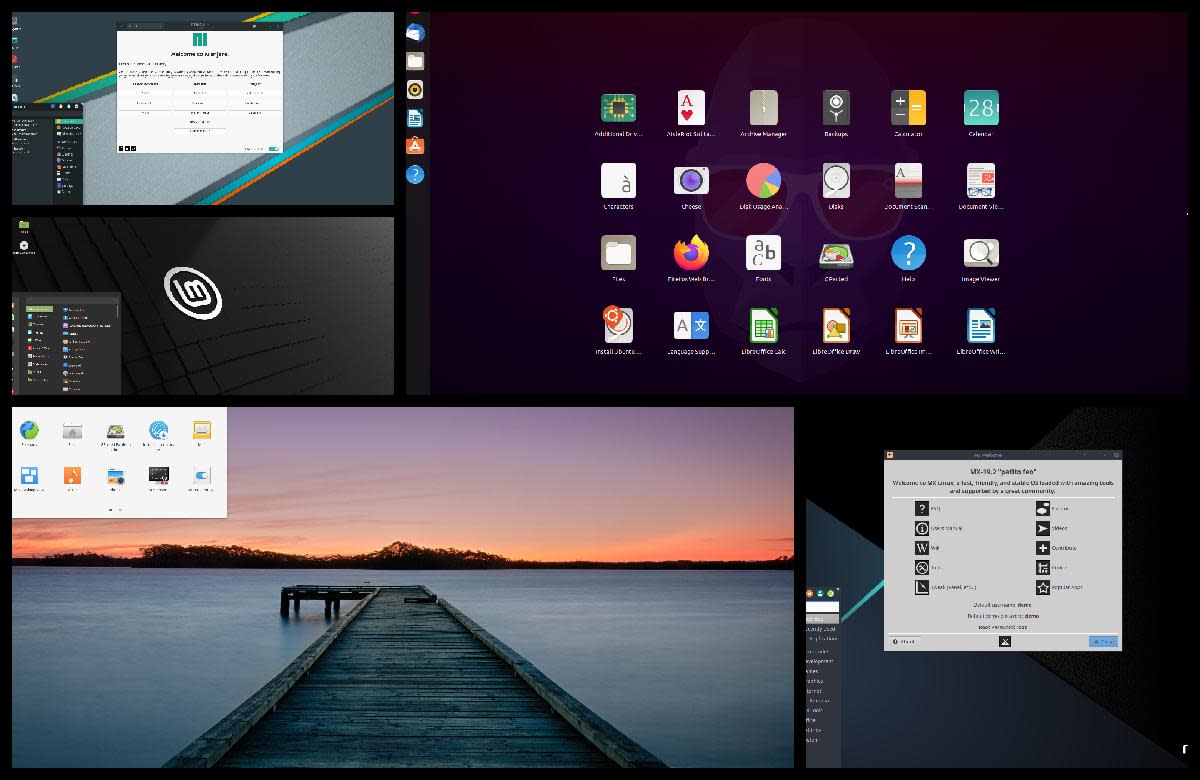- HubPages»
- Technology»
- Computers & Software»
- Operating Systems
GTalk for Fedora: How to Use gtalk for Fedora 14

Google talk / gtalk is one of the best product of Google and most people like it when the Google user has a google email account. Google talk /gtalk is totally free and any one who has a Google email account can use it without any limitations. Using google talk /gtalk for Windows comptuter is really easy to install and use. But for Fedora Linux it is not so easy for all the newly Linux user. Actually, up to write this article I tried lots of way to install google talk /gtalk on my Linux Fedora 14 but failed. I download the google talk /gtalk form Google's official website but failed when I execute the command to the terminal of Fedora Linux. I then searched lots of web but found that there is no clear instructions to install google talk /gtalk in Linux Fedora operating system. Actually, I could not found any thing that can help to install google talk /gtalk on my linux computer. But I found a small nice software which I install and then start the google talk /gtalk easily through that. In this page you will find the details instructs to use google talk /gtalk on your fedora linux operating system. It is mentionable, I tried this technique to install and use google talk /gtalk on Red Hat Linux Fedora 14. Hopefully, this tutorial will help you to solve other Fedora version (..., Fedora 7, Fedora 8,.... Fedora 13 ,Fedora 14,.. etc.) of Linux as well.
Steps to Use Use google talk / gtalk for Fedora 14:
To use google talk / gtalk in Windows (Windows XP, Windows Vista, Windows 7), you need to download the installer from GOogle's website and install that and use tha. But for Fedora Linux like operating system this is not alike. You may download google talk / gtalk software from Google, install that but can't use that. I failed actually and I tried lots of time to do that. Later, I discovered a thin nice software that can use to chat through google talk / gtalk and this is Pidgin softare. Using this software you can easily use google talk / gtalk. You just need to install and then start using that software. Moreover, you can use that to chat with other messenger also. In the followings you will find the ways to use google talk / gtalk through Pidgin:
Step 1: Opening the terminal window
To use the Pidgin, you must have to install Pidgin to your Fedora Linux operating system and to install anything you generally do that through the terminal. So, first open the Terminal. For Fedora 14, terminal is located to Applications -> System Tools -> Terminal.
Step 2: Accessing the administrator mood
To install anything in Fedora Linux 14 or other version, you must have to access the administrator privilege mode. You can easily do that by typing the command su - root and then provide your password for the root mode access. If you successful have logged in, then go to the following step.
[me@localhost ~]$ su - root Password: [root@localhost ~]#
Step 2: Install Pidgin to your computer
You need to install Pidgin software from the terminal window. You can use the command yum to install the software. Remember, you don't need to download anything before doing this. All things are are automatic when you write the command. Just type the following line command to the terminal and hit Enter key to execute.
[root@localhost ~]# yum install pidgin
After the command yum install pidgin, you will find the following lines are executed to your terminal window. Here, pidgin is downloaded.
Loaded plugins: langpacks, presto, refresh-packagekit Adding en_US to language list google-talkplugin | 951 B 00:00 Setting up Install Process Resolving Dependencies --> Running transaction check ---> Package pidgin.i686 0:2.7.9-1.fc14 set to be installed --> Processing Dependency: libpurple(x86-32) = 2.7.9-1.fc14 for package: pidgin-2.7.9-1.fc14.i686 --> Running transaction check ---> Package libpurple.i686 0:2.7.9-1.fc14 set to be updated --> Finished Dependency Resolution Dependencies Resolved ================================================================================ Package Arch Version Repository Size ================================================================================ Installing: pidgin i686 2.7.9-1.fc14 updates 1.4 M Updating for dependencies: libpurple i686 2.7.9-1.fc14 updates 6.1 M Transaction Summary ================================================================================ Install 1 Package(s) Upgrade 1 Package(s) Total download size: 7.5 M Is this ok [y/N]:
The Pidgin is downloaded and ask you to install it or not. Just simply write Y and hit Enter key and it will installed automatically.
Is this ok [y/N]: y Downloading Packages: Setting up and reading Presto delta metadata updates/prestodelta | 590 kB 00:19 Processing delta metadata Download delta size: 2.1 M libpurple-2.7.3-4.fc14_2.7.9-1.fc14.i686.drpm | 2.1 MB 01:07 Finishing rebuild of rpms, from deltarpms <delta rebuild> | 6.1 MB 00:11 Presto reduced the update size by 66% (from 6.1 M to 2.1 M). Package(s) data still to download: 1.4 M pidgin-2.7.9-1.fc14.i686.rpm | 1.4 MB 00:53 Running rpm_check_debug Running Transaction Test Transaction Test Succeeded Running Transaction Updating : libpurple-2.7.9-1.fc14.i686 1/3 Installing : pidgin-2.7.9-1.fc14.i686 2/3 Cleanup : libpurple-2.7.3-4.fc14.i686 3/3 Installed: pidgin.i686 0:2.7.9-1.fc14 Dependency Updated: libpurple.i686 0:2.7.9-1.fc14 Complete!
In this way, you can install Pidgin to your Fedora 14 Linux computer. Now, to use Pidgin, go to Applications -> Internet -> Pidgin Internet Messenger. Very soon, Pidgin will open and now just configure it to use google talk / gtalk. It is mentionable that Pidgin offers not only google talk / gtalk or gtalk messenger but also other messenger like Yahoo, MSN etc. Hopefully, you can now use google talk / gtalk and talk to your google friends.
@Written by rancidTaste.









